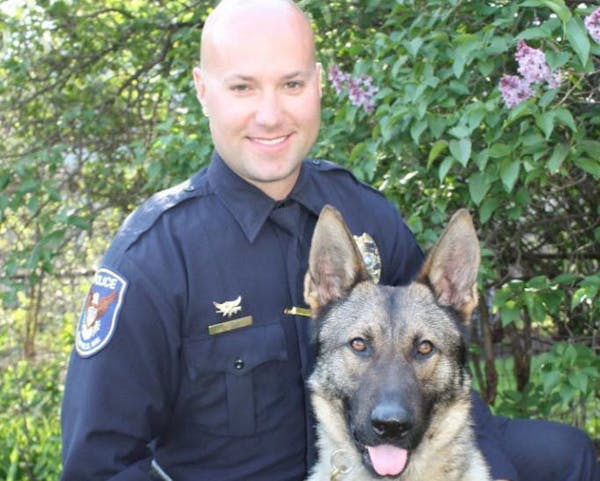Minneapolis Mayor Jacob Frey is exploring ways to split the police union to separate supervisors from rank-and-file officers, a move he said will help root out police misconduct.
"We are one of the only cities in the entire country that has supervisors sit on the same side of the collective bargaining table as those they are supervising," Frey said in an interview this week with the Star Tribune. "You're less likely to discipline individuals that are on your team. So I feel very strongly about separating out these collective bargaining units."
Currently, higher-level supervisors from Chief Medaria Arradondo to the commander level are not members of the Police Officers Federation of Minneapolis. But sergeants and lieutenants are in the same bargaining unit as patrol officers.
Frey and Arradondo are discussing whether to ask the state Bureau of Mediation Services to divide the supervisors from patrol officers in future contract negotiations. Frey said the move would help change the culture of the police department, professionalize the ranks of sergeant and lieutenant and improve police accountability.
"I'm saying the sergeants, the ones that are tasked with doing a significant amount of the discipline and supervision, should also be within the administration," Frey said.
A lawyer for the union said Friday it's a "meaningless exercise" that's been considered and rejected before.
But the proposal signals a willingness from the new mayor to confront the politically powerful police union. In his first months in office and throughout the campaign, Frey has listed police accountability — and mending relationships between officers and the public — as a top priority.
Earlier in April, Frey and Arradondo announced plans to introduce stricter guidelines for police body camera use and clearer consequences for officers who fail to turn them on. The idea of reconstructing the union had not occurred to him until recently, the mayor said.
"It's a massive item, and it's one that we've been figuring out the legalities and process of," Frey said.
The Police Officers Federation of Minneapolis, whose president is now Lt. Bob Kroll, is the most prominent voice of police officers who patrol the city. Though Kroll has been more complimentary about the current chief, the union has publicly clashed with the mayor for years.
In 2014, the union's president at the time pushed the idea that then-Mayor Betsy Hodges was flashing gang signs in a photo with a man while they door-knocked, a controversy dubbed "Pointergate."
Two years earlier, despite then-Mayor R.T. Rybak's opposition, the union persuaded the Legislature and Gov. Mark Dayton to weaken the city's board that oversaw allegations of police misconduct.
The union is viewed by some in Minneapolis as a barrier to better relations between police and the public.
The Rev. Jerry McAfee, the pastor of New Salem Baptist Church, said on Tuesday that the union is too strong and should be "put into receivership," which would strip it of autonomy.
"You can put Mahatma Gandhi as the chief and it still won't do any good, because the culture is rotten," McAfee said at a public safety forum on Tuesday.
In an interview Friday, Arradondo said discussions about splitting patrol officers from their supervisors are in preliminary stages, and he hasn't had a chance to speak with Kroll about it. But he said he sees value in recognizing the distinct leadership role of sergeants and lieutenants. "I want to make sure that their role, scope and value to this department are recognized," Arradondo said. "They can be key contributors to changing culture within the MPD."
He said he doesn't believe the department has a big problem with supervisors failing to discipline officers because they are allies at the bargaining table, but he said it is worth looking into. "I definitely want to have the conversation," he said.
The Minneapolis Fire Department has a separate contract for deputy chiefs and battalion chiefs. The police bargaining unit initially included captains and precinct inspectors, said Jim Michels, a lawyer for the Police Officers Federation. Precinct inspectors were taken out of the bargaining unit about 15 years ago. Captains were taken out more recently.
In the current agreement, the only differences between patrol officers and sergeants and lieutenants are how much they're paid and the fact that patrols can bid on shift assignments based on seniority, said Michels.
"What is the point of going through the exercise of having to spend the time and money to negotiate two separate agreements that basically say the same thing?" Michels said. "It just doesn't make sense."
Michels also rejected the idea that supervisors might go easier on officers because they're in the same bargaining unit.
"I think you'd be hard-pressed to find anybody who can give you an example of a situation in which an employee got preferential treatment because of their union affiliation," Michels said.
The police labor agreement lasts until the end of 2019.
Adam Belz • 612-673-4405 Twitter: @adambelz
'Human error' behind Robbinsdale shelter-in-place alert that was mistakenly sent countywide

Going to Wolves or Twins tonight? How to get there (and maybe avoid traffic).
Focusing on bringing football film into frame

